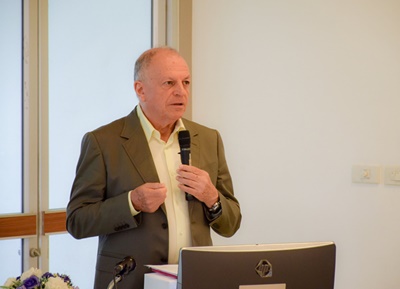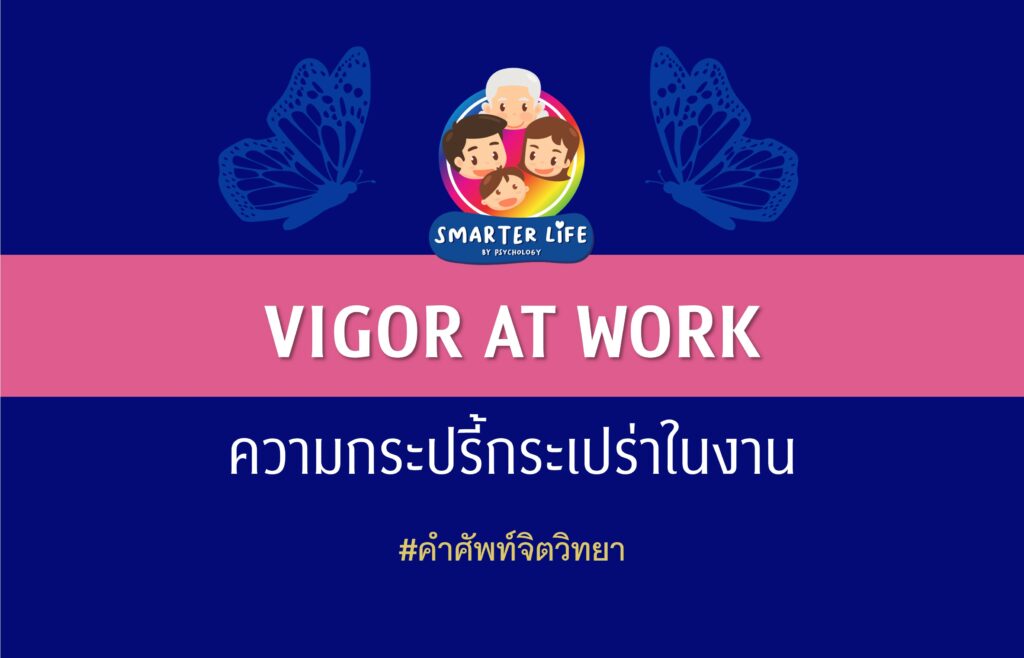A ROADMAP TO FUTURE SUCCESS
Chula, Mon April 22, 2019

Good morning everyone, I am very happy and honored to be with you today.
My name is Alain Mahillon, I am a French national, living and retired in Bangkok since 2014.
My background is hospitality management, working for Hilton Intl, whose core business is hotel management, in various capacities from General Manager, to Regional General Manager and Vice President South East Asia responsible for 17 business units.
My career enabled me to travel, live and interact with many cultures in countries like Canada, Puerto-Rico, Madagascar, Guam, Japan, Thailand and Singapore.
My work was essentially to manage and provide advice to hotel owners and investors with a dual reporting line to the Hilton group as well and to the local investors.
This type of work is classified as the tertiary sector of a country’s economy and is also called the service industry. The definition of the service sector is: a transaction in which no physical goods are exchanged between the buyer and the seller; in other words: a service is provided against a fee.
The nature of your studies seems to indicate that, in all likelihood, you will start your career in one of the fields attached to the service sector which, as a refresher, encompasses: consulting, management, information technology, justice, human resource including recruitment, law, education, insurance, retailing, tourism, food and beverage, and let’s not forget healthcare.
You need to be congratulated for having chosen a career in the fastest growing sector of the world economy and representing 51% of the active worldwide population, and these numbers keep growing year on year.
Let’s now move to the order of the day which is the Roadmap to your Future Success.
During the next 15-20 minutes or so, I will outline the 3 major changes that have profoundly transformed the labor market from what it had been for a long time and still was, only a few years ago.
The first of these changes is called “Work Experience”.
For many, many years, the value of a professional was measured, by and large, by the number of years he had been at his job; to put it very bluntly, it meant: how many years had he been doing the same thing. At that time, the status quo, the motto “why fix it, if it’s not broken” were king. Companies were risk-averse and changes to the way of hiring, to the market in general, were very few and far between.
So, why rock the boat; why change what appeared to be a winning formula that would last forever?
You all know what happened in 2007/2008: Recession came in sent many companies belly up and everyone had to learn the hard way how to do business differently.
Ever since, the notion and the value of “experience” have been redefined and are no longer revered as it used to be.
Let’s take your case: You have received a very solid and precious education that has prepared you very well to enter the labour market, if you so desire.
At the same time, you must keep your feet on the ground and realize that even the best education cannot prepare you for all the situations you are likely to experience in the real world. Case studies have certainly been very helpful but still…
So, you are going to need to gain some experience, in other words, you are going to have to learn – the key word here is learn – when you thought the learning was over, to learn what is not in the text books and your potential employer knows that.
So, here you are, being interviewed by a potential employer and be aware that you are expected to do most of the talking.
The interviewer will obviously not talk about you past record, so he will steer the interview to evaluate you on the 3 key competencies of your personality that are relevant in virtually every single position worth applying for, given your educational background :
- You should know that the interviewer has a profile of the ideal candidate and a very specific short-list of the key competencies required for this position. If this profile has not been shared with you, you absolutely must ask the question: what is the profile of the candidate are looking for?Let me sound a word of caution here: you must be very honest with yourself and the company: if this profile is too different from who you really are, just say so, and avoid yourself and the company a very painful and agonizing experience which will inevitably end in failure.The interviewer will appreciate your honesty and maturity and may even recommend you for another vacancy in the company.
- If you have no prior work experience, which is your case, the interviewer will invariably focus on the following 3 key competencies:
- The first one is: Your willingness to learn. I call it intellectual curiosity. How open, how hungry, how eager are you for new knowledge. How proactive are you, are you a go-getter, or one that just waits for information to come to him. Have you gone on the net and researched the company you are applying with etc….
- The second one is: your intellectual capacity to grasp, to comprehend, to process moderately complex issues and data.
In essence, they want to evaluate your learning curve, so that you become productive in the shortest possible time.
Experience is no longer a long and drawn out process like it used to be. Companies have very sophisticated orientation process called on-boarding, on-line and also one on one very focused training programs, a buddy system which will bring you up to speed in a very short period of time. The younger generation is a much quicker study than the previous one; so, all they need is to be convinced that you are eager to learn, that you have the appetite and the intellectual ability to understand, process and retain what you will be taught during your training period.
REPEAT THE UNDERLINED PART
- The 3rd and last competency is: the ability to work as and in a team. In today’s business world, everything is done in and by a team, given the complexity of most projects.Give example of Babson, if needed.
Now back to the Roadmap to Future Success:
The 1st major change was the scaled down importance of The working experience. We are not saying it is not important, we are saying it is less important than before.
The second major change is called : “Generational harmony in the work place”. As you enter the labour market, you will be working with 3 and sometimes 4 different generations within the same organization.
It is vital, in the interest of harmony in the workplace, to accept that each generation has an important role to play in the organization and that each one deserves respect, especially, especially, when you believe they are wrong.
The older generation still holds a lot of knowledge which they are quite keen to share with the younger generation, if, if, you have the right approach.
The older generation is also aware that fresh ideas and approaches will have to come from the younger generation, because their experience only looks at the past when, in fact, today one needs to look at the future, not the past, to survive. Also, at times, they feel quite overwhelmed by so many changes all happening so fast.
Here are a few recommendations that you will find very helpful:
- First, and probably the most difficult thing for anyone is to, listen, listen and ……..listen! By that, I don’t mean for you to bend to every whim, but just open your mind to new things and try to understand one another.
- Second, be flexible and try to spot the idiosyncrasies and traits that each generation has in common, such as: communication preferences, stereotypes, values, work ethics and consider how to cross over and bridge the gaps.
- The 3rd and last of these changes is best represented by this instrument which I am holding in my hand which is called ……………mobile phone. It is most relevant to this presentation in that it is the symbol of mobility, and mobility is probably the most important change that society has had to face today.
What is Mobility? It is primarily the movement, the easy and free circulation of people and ideas to improve things.
Animals migrate for food, for warmer climates; populations migrate to cities for work and better life; religious migrants flee persecution, economic migrants look for a better life and recently climatic migrants escape global warming.
Mobility of the work force implies that the work force will have to be flexible in many ways, and the key word here is flexibility.
People will have to move to places where there are employment opportunities and not the reverse, as it used to be.
Life time employment and long term loyalty are virtually gone, gone forever.
Career changes are valued by employers because it increases self-confidence, gives exposure to a greater variety of work experiences, organizational cultures and new sets of skills.
It is estimated that every professional will change job or career between 5-7 times during his entire professional life. Please note that this also includes changing jobs in the same organization but in a different capacity.
Employers expect, or will accept, that you will want to change jobs or career every 3 years. If you change jobs less frequently, you will need a solid explanation for your next interview or your next performance review.
Now, when will you need to change jobs? Does anyone have any idea?
Basically, when you will feel you have stopped learning.
For example, if you need a learning curve of let’s say 6 to 9 months, depending on the level of complexity of your job, you will probably reach a plateau of top performance after 18 months; so, to be fair to your employer, you should perform for another 18 months. Then it is time for a change, inside or outside the company.
Another very important side of Mobility is the taking a job in a field totally different from your major in college This is becoming more and more frequent for reasons explained earlier, but also on account of your generation’s ability to learn a new trade, craft or profession and reach a level of proficiency very quickly, whilst bringing a fresh and innovative approach to the new job.
I felt vindicated, a few days ago, when I came across an article in the Bangkok Post stating that the Ministry of Education of Thailand had announced: quote “Higher education students will be allowed to take up multidisciplinary studies across universities and through informal education. Tertiary students will be able to pursue inter-faculty studies at more than one university and still qualify to obtain a bachelor’s degree.
There will be no limit on the period of time it takes to accumulate the credits before the students can qualify to receive a degree.
The Chairman of OHEC stated that the system aims at making a lifelong learning experience which is not restricted to the classroom of a single institute.” end of quote.
This is another example of the type of mobility required in today’s world and OHEC deserves to be congratulated for being so forward looking.
Let me give a few living examples of mobility:
- Four Seasons hotel was opening a new hotel in Mexico but couldn’t locate an HR Manager that possessed all the competencies required such as: caring, compassionate, psychologically astute, articulate and persuasive, capable of processing multiple and complex information. They refused to lower their standards and decided to search outside the box and finally hired a Medical Doctor who did an outstanding job for them and earned a higher salary than a GP in Mexico.
- The other example comes from the daughter of a friend of mine. She graduated as a physicist in London and was very surprised to receive a job offer from (guess who?) ………the Hong Kong Shanghai bank. She called the bank to inform them they had made a mistake but they confirmed their interest. When she asked what the logic was behind such unusual offer, the answer was: “We are tired of hiring business graduates that all have the same thought process; we are interested in different types of approach, similar to the ones used in research.”
I believe these 2 examples perfectly illustrate the need for you not to fear the lack of experience referred to earlier in the presentation.
As I am about to conclude, I realize this has been a fairly dense presentation, but the 2 key points I would like you to take away with you today are as follows :
- The 1st key point is: From the minute you were born you until the day you will be taking you last breath, life will be – and should be, a life-long learning experience.
We are on this earth to learn by doing or otherwise, and if you stop learning, it is time to jump ship and do something else, before you waste too much of this precious life of yours. - The second key point is of a more pragmatic nature: Statistics among new graduates show they remain unemployed primarily because of very high starting salary demands.
I beg of you! Don’t be greedy, please, be smart instead. !
You are all very bright young men and women, but you need a stage, a platform where you can demonstrate your skills, your talents and be recognized for what you are worth in terms of compensation and potential for the company. So, please, don’t be short-sighted, don’t pass up on a job in a company that wants you and where, you know, you would do very well, just because of a salary. Bear in mind, you will change jobs 2-3 years later, so it’s not like you‘ll be stuck with that low salary all your life. Get your foot in the door first! - As for success, it will mean different things to different people, so I won’t even attempt to broach the subject.I believe that, more than success, we all need rewards, encouragements, positive reinforcements, to know we are on the right path, on our path.
- You will know, for sure, when you have done well for your soul or that of others, when a gentle wave, out of nowhere, will come and hug you, will fill every pore of your body with unconditional love. This is bliss and, for me, it beats success any time of the day.
It leaves me to wish all of you, lots of luck, a meaningful life and career, full of life-long learning and unconditional love.




